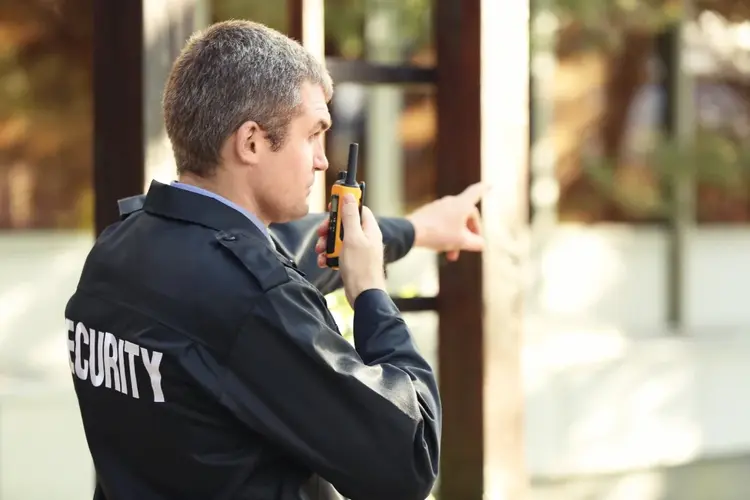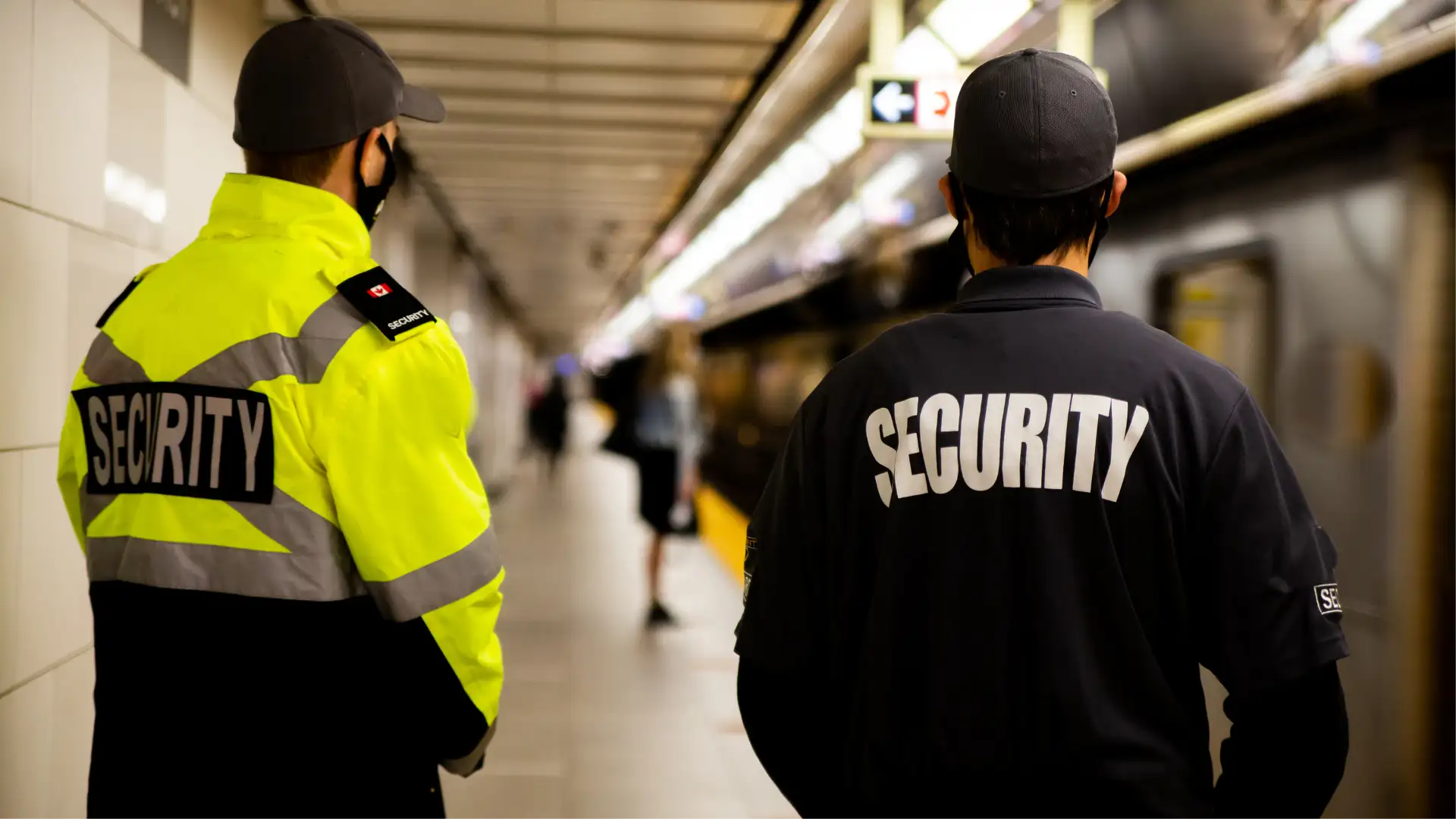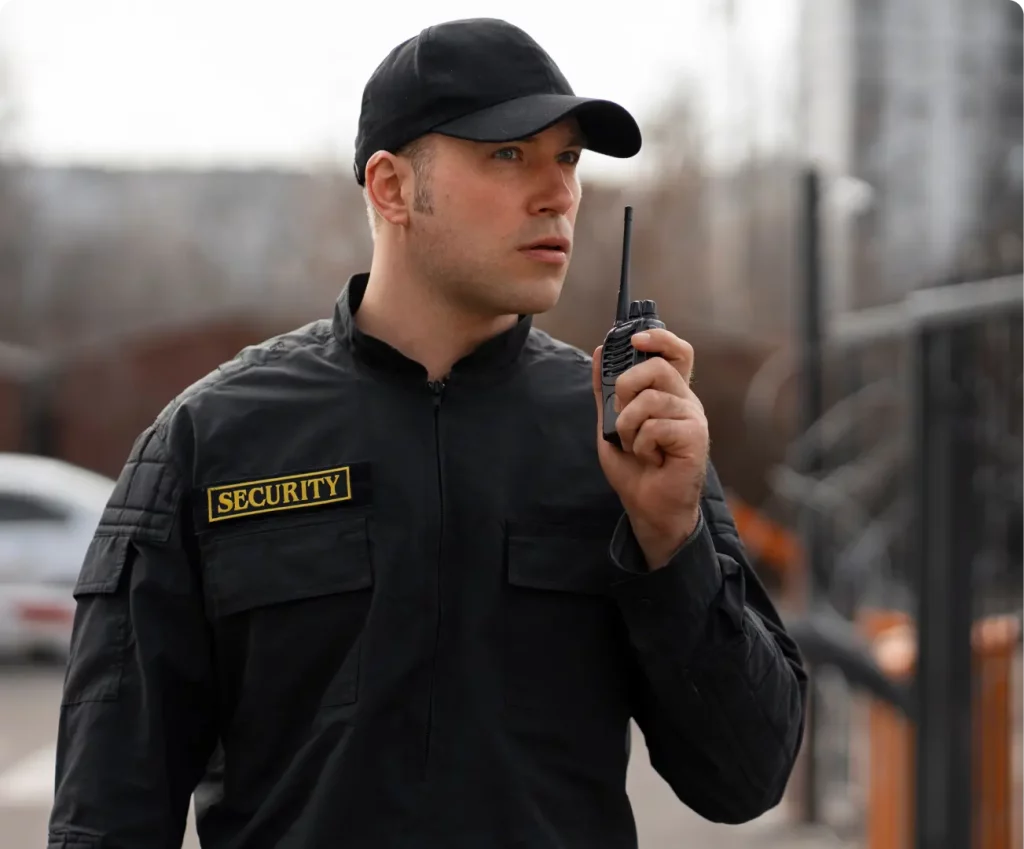Introduction
It’s interesting to know what security guards can and cannot do, whether you’re thinking about working in security or are simply a member of the public.
You will know if security guards can touch, search, or detain you after reading this article, whether you are out clubbing or shopping. So continue reading to gain a better understanding of your rights and the security sector.
Security officers have less authority than police officers. Security personnel are typically more like regular citizens. They are no different from other members of the public in terms of rights.
Every security guard must identify themselves by wearing their badge and licence visible to the public at all times on their uniform. You should alert the company the security guard works for if you notice them without a badge. If you misplace your badge as a security guard, you must immediately notify the SIA, but you may continue to work until a new one is delivered. If the SIA learns that someone is working without a badge, they have the right to revoke their licence or even take legal action against them for licence violations.

What Security Guards Can Do?
Can Arrest a Citizen
Any public member would be within a security guard’s rights to arrest if someone was committing an offence or if a crime had already been committed and they had good reason to believe that someone was guilty. Security guards have no more authority in this sense than the general public, albeit they are permitted to make citizen arrests under certain circumstances. Security personnel are more trained in the physical actions required to arrest since they are in a position where they are more likely to use force. Only police officers have the authority to intensify a physical arrest.
Can Detain a Citizen
A security guard can detain you but must have a valid justification. They make a citizen’s arrest when they detain you, and Section 24A of the Police and Criminal Evidence Act outlines the procedures they must follow.
They either observe a crime or have solid evidence to support their suspicions.
To stop someone from hurting oneself or other people.
To prevent someone from harming property.
Stop someone from leaving the area before a police officer arrives to take over.
Can Touch You
Security guards are only allowed to touch you while holding you in custody.
Can Request a Physical Search
Security personnel have the right to ask to physically check you and any items you have on you before allowing you to enter a place. Additionally, they have the right to demand a physical inspection whenever you enter or leave a store for whatever reason, especially if they have cause to believe you have stolen something. This is perfectly legal.
Only if you give your permission can a security guard search you, your bag, or your vehicle. They aren’t allowed to search you if you object. If you enter a club and ask them not to search your bag, they will likely reject your admittance and send you on your way.
Again, if you decline the bag search after being stopped by a security guard who believes you are hiding stolen items in your bag, the guard may not search. If you continue to object, they will hold you until a police officer shows up so they can perform a legitimate and forced search.
A security guard may only search someone’s possessions, such as a bag if the area has been left unattended and the guard is looking for a possible bomb threat. The security guard may inspect your belongings to identify you or locate any prescriptions that might be useful for your health emergency. When you are unconscious, they can inspect your backpack as well.
Get your Legal SIA Licence by signing up for our SIA Security courses
Security Courses
Book NowRated Excellent
on major review sites

What Security Guards Cannot Do?
Cannot Use an Excessive Amount of Force
Security officers, concierge security, and mobile patrols are prohibited from using excessive force when effecting a citizen’s arrest. Excessive use of force would make the arrest of the civilian illegal, which would harm the security guards and their employer’s reputation. Guards should not use more force than is necessary to detain an arrested person; physical force should only be used if the suspect resists. Additionally, restraint should only be applied while waiting for the police to arrive and take control of the issue.
Cannot Carry a Weapon
Security officers aren’t authorised to carry guns because they have the same legal rights as everyone else. They are not allowed to carry weapons on their person as a deterrent or to use them, whether it be pepper spray, batons, or a gun. Front-of-house security personnel are more likely to emphasise negotiation techniques than physical force.
Since it is illegal to carry weapons in the UK, no one is authorised to carry weapons like guns, batons, tasers, or pepper spray, including security personnel. A set of handcuffs is the only thing a security guard possesses. These are not weapons; they are a tool for keeping a person when the security guard makes a citizen’s arrest, and they are only used until the police show up. Guards will be taught how to use handcuffs effectively and safely, although anyone in public is technically allowed to carry them. Handcuffs are allowed for citizen arrests.




